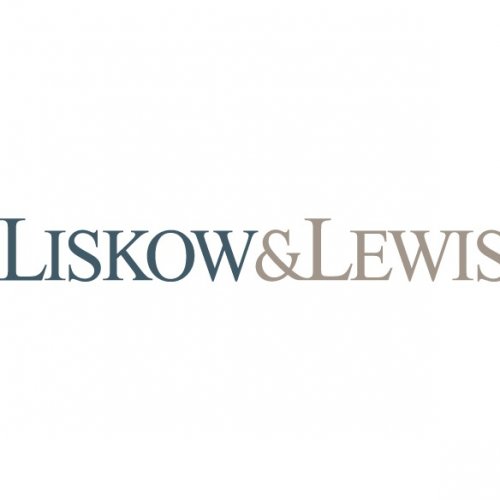Best Nonprofit & Charitable Organizations Lawyers in New Orleans
Share your needs with us, get contacted by law firms.
Free. Takes 2 min.
List of the best lawyers in New Orleans, United States
About Nonprofit & Charitable Organizations Law in New Orleans, United States
Nonprofit and charitable organizations serve critical roles in the community by addressing various social, educational, and cultural needs. In New Orleans, these organizations are vital to the city's vibrancy and recovery efforts post-natural disasters. Nonprofit law encompasses the creation, operation, and governance of these entities, requiring adherence to federal and state laws. New Orleans-based nonprofits must comply with the Louisiana Nonprofit Corporation Law and federal regulations pertinent to tax-exempt status.
Why You May Need a Lawyer
Individuals and organizations may seek legal assistance in several scenarios related to nonprofit and charitable organizations:
- Forming a new nonprofit organization and seeking guidance on legal structure and federal/state registration.
- Navigating the complexities of obtaining and maintaining tax-exempt status under IRS Code Section 501(c)(3).
- Drafting, reviewing, or amending bylaws and governance documents.
- Handling conflicts of interest, compliance issues, or governance disputes.
- Facilitating mergers, acquisitions, or partnerships with other entities.
- Addressing employment law matters concerning nonprofit staff and volunteers.
- Managing charitable solicitation regulations and fundraising compliance.
- Dealing with IRS audits or Louisiana tax compliance concerns.
Local Laws Overview
Nonprofits in New Orleans must navigate a multifaceted legal landscape, including:
- Louisiana Nonprofit Corporation Law (LNCL): Governs the formation, operation, and dissolution of nonprofit entities within the state.
- Taxation and IRS Code Compliance: Organizations must adhere to IRS provisions to maintain tax-exempt status and comply with Louisiana Department of Revenue regulations.
- Charitable Gaming: Many Louisiana nonprofits engage in charitable gaming; they must comply with state-specific laws governing these activities.
- Fundraising Compliance: The state mandates registration and reporting for organizations soliciting donations.
- Government Grants and Contracts: Legal requirements govern the application for and use of government funding.
Frequently Asked Questions
How do I start a nonprofit organization in New Orleans?
Begin by selecting a legal structure, preparing Articles of Incorporation, filing with the Louisiana Secretary of State, and applying for an EIN from the IRS. Completing Form 1023 for tax-exempt status is often necessary.
What are the required filings to maintain a nonprofit in Louisiana?
Nonprofits must file annual reports with the state and IRS Form 990 annually. Additional filings may include charitable solicitation registrations.
How can my nonprofit obtain 501(c)(3) status?
Submit IRS Form 1023 or 1023-EZ with supporting documents demonstrating your organization's charitable purpose, governance, and operations.
What is the importance of a nonprofit’s bylaws?
Bylaws establish the governance framework, detailing operational procedures, board roles, and meeting protocols, and are crucial for legal compliance and organizational integrity.
Are nonprofits exempt from all taxes?
While typically exempt from federal income tax, nonprofits may have tax obligations, such as employment taxes or unrelated business income tax.
What is unrelated business income tax (UBIT)?
UBIT applies to income from business activities unrelated to a nonprofit's exempt purpose. Such income must be reported and may be taxed.
Can a nonprofit engage in political activities?
Nonprofits can engage in nonpartisan activities, such as voter registration, but 501(c)(3) organizations are prohibited from participating in political campaigns.
What should we consider when accepting donations?
Ensure compliance with state solicitation laws, proper valuation of in-kind gifts, maintaining donor anonymity, and providing IRS-mandated acknowledgment receipts.
How do we handle conflicts of interest within our board?
Implement and follow a conflict-of-interest policy requiring disclosure and recusal from decisions where personal or financial interests are present.
What legal issues pertain to working with volunteers?
Ensure clear agreements outlining roles, consider liability and insurance matters, and comply with applicable labor laws regarding volunteer work.
Additional Resources
For more information and assistance, consider the following resources:
- Louisiana Secretary of State: Provides guidelines and forms for nonprofit formation and compliance.
- Internal Revenue Service (IRS): Offers extensive resources for understanding tax-exempt requirements and the application process.
- Greater New Orleans Foundation: Offers support and resources for local nonprofits.
- Louisiana Association of Nonprofit Organizations (LANO): Provides training, advocacy, and support for nonprofits within the state.
Next Steps
If you need legal assistance for your nonprofit or charitable organization, consider the following steps:
- Identify specific legal issues or needs and prioritize them.
- Research and contact a law firm or attorney specializing in nonprofit law in New Orleans.
- Prepare all relevant documentation and questions before meetings with a legal professional.
- Engage with local nonprofit support networks for referrals and advice.
Proactive legal advice can ensure your nonprofit's compliance and long-term success in serving your community.
Lawzana helps you find the best lawyers and law firms in New Orleans through a curated and pre-screened list of qualified legal professionals. Our platform offers rankings and detailed profiles of attorneys and law firms, allowing you to compare based on practice areas, including Nonprofit & Charitable Organizations, experience, and client feedback.
Each profile includes a description of the firm's areas of practice, client reviews, team members and partners, year of establishment, spoken languages, office locations, contact information, social media presence, and any published articles or resources. Most firms on our platform speak English and are experienced in both local and international legal matters.
Get a quote from top-rated law firms in New Orleans, United States — quickly, securely, and without unnecessary hassle.
Disclaimer:
The information provided on this page is for general informational purposes only and does not constitute legal advice. While we strive to ensure the accuracy and relevance of the content, legal information may change over time, and interpretations of the law can vary. You should always consult with a qualified legal professional for advice specific to your situation.
We disclaim all liability for actions taken or not taken based on the content of this page. If you believe any information is incorrect or outdated, please contact us, and we will review and update it where appropriate.














